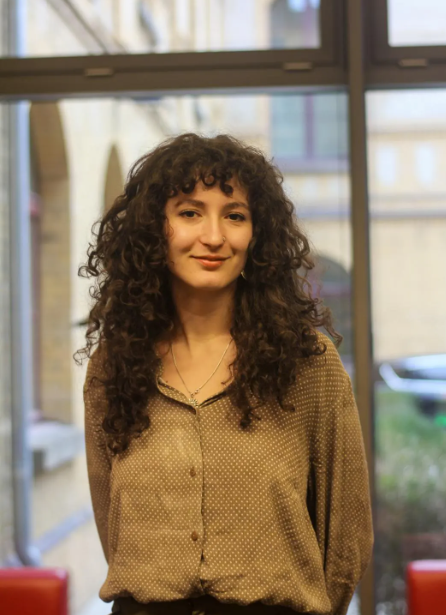Migration Working Group
Migration is a cross-cutting, multifaceted and sociologically complex phenomenon, and the European continent is a reflection of this diversity. Moreover, migrations have been and will be at the heart of the construction and development of the European Union. However, European migration policies remain a largely misunderstood subject, with many ambiguities and paradoxes. We believe that migration discourses and policies have been politicised and often used as a scapegoat to foster communities united by fear rather than solidarity. In this endeavour, the Migration Working Group (MWG) aims to explore the various complexities related to migration by publishing reports, articles, policy briefs, podcasts, infographics, as well as participating in related events and webinars. It is essential to understand what, when, where and how Europe has failed in its response to migration flows in order to reconnect policy debates with evidence-based data, and propose sustainable ways towards a fairer society, and a better future for Europe.
Head of Working Group – Stefana Vizman

Originally from Romania, Stefana has a BSc in Political Science from the University of Amsterdam and is currently a Masters student in the Global Studies Programme at Humboldt University. Over the past year, she has spent time studying and conducting research in India and Argentina, and is now based in Berlin. There, she works at the German Center for Integration and Migration Research on a project exploring ancestral citizenship. Stefana’s research focuses on migration, from, and within Eastern Europe, alongside broader processes of social transformation that shape—and are shaped by—human mobility. In particular, she is interest to explore the interplay between macro-social changes, global systems, and power relations, and how these dynamics influence migration and identity formation. Beyond her academic work, Stefana is passionate about politics and culture, striving to bridge the gap between academic research and civil society.
Natalia Garcés Caso – Deputy Head

Natalia is a graduate of the Master’s in Sociology of Migration and Ethnic Studies from the University of Liège, and holds a double degree in Law and International Relations from Universidad Rey Juan Carlos in Madrid. With a multidisciplinary and intersectional approach, she has conducted research in France, Belgium, and Spain on topics such as transnational political participation of migrants, border management, and the inclusion of unaccompanied foreign minors.
In addition, she has combined her research work with activism in various associations, which has allowed her to understand the needs of migrants and prioritize research focused on them, with a human-centered approach.
Lisa Motzig

Lisa Motzig is an advocacy officer for the French association e-graine. She graduated from a master’s degree in International Relations from Sciences Po Bordeaux, France. She had the chance to study not only in France but also in Great Britain and in the United States. Her research interests centre around the intersection of migration and gender issues. Her prior experiences consisted in managing a feminist support centre in France and advocating for homeless people’s rights in the U.S. After these successful endeavours towards social justice, she served marginalised asylum seekers in Greece as a Communication and Advocacy Officer for the non-profit Safe Place International, which gave her priceless insights into European immigration policies and convinced her to work in the field of migration.
Tatiana Papadopoulou

Tatiana has recently graduated from King’s College London with a master’s degree in European Studies. She has lived in the UK for the past five years, having previously completed her bachelor’s degree in Politics and International Relations at the University of Nottingham. After finishing her studies, Tatiana joined the Public Diplomacy Office of the Greek Embassy in London as an intern, where she monitored the British press, and later the Foreign Policy and Security Unit of the Permanent Representation of Greece to the EU, where she supported the Greek delegation at the Council of the EU. Her research interests focus on the externalisation of migration, foreign policy, and security, themes she studied in depth in her MA dissertation and explored in practice during her internships. holistic view of the migration phenomenon.
Chiara Todesco

Chiara Todesco holds a BSc in International Politics and Government from Bocconi University and is a MSc student in Migration, Ethnic Relations and Multiculturalism at Utrecht University. She was selected on the basis of merit to spend a semester at Yale-NUS College in Singapore, where she studied migration policy, sociology, law and governance from a South-East-Asian perspective. She is working as a Research Assistant at Utrecht University on a project focused on future intentions of international students in the Netherlands.
Her research interests centre around migration policy, integration and public opinion. She has first-hand experience with policy-making, as she worked for 3 years as Municipality councilor in Milan, advocating for youth-centered policies.
Francesco Prencipe

Francesco Prencipe holds a Master’s degree in International Migration and Public Policy from LSE. He specializes in migration policy, refugee assistance, and EU-MENA relations, with experience in Jordan and Egypt. In Jordan, he worked as a research assistant at the University of Jordan’s Center for Strategic Studies and with the Jesuit Refugee Service (JRS), where he gained practical knowledge in refugee support. Currently based in Egypt, Francesco is working on improving his Arabic while continuing his involvement in migration-related issues. His professional background includes digital communications and policy analysis, particularly at the Tahrir Institute for Middle East Policy. He is fluent in English and Italian, and proficient in Arabic and French.

 Is Nuclear Disarmament Still a Dream? The Third Meeting of State Parties in Perspective
Is Nuclear Disarmament Still a Dream? The Third Meeting of State Parties in Perspective  Strategic Saboteur: Hungary’s Entrenched Illiberalism and the Fracturing of EU Cohesion
Strategic Saboteur: Hungary’s Entrenched Illiberalism and the Fracturing of EU Cohesion  The invention of development: power, narrative, and the afterlife of Truman’s speech
The invention of development: power, narrative, and the afterlife of Truman’s speech  Is the World Trade Organisation a Failure?
Is the World Trade Organisation a Failure?